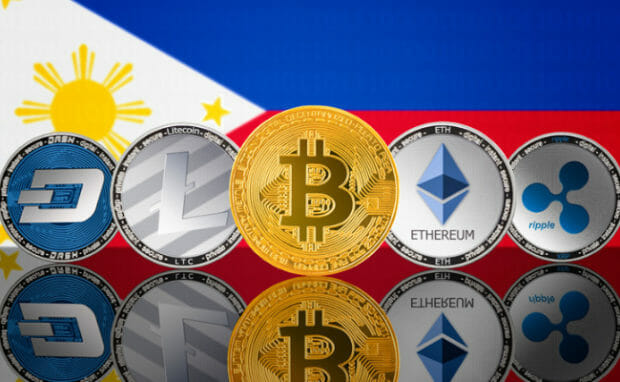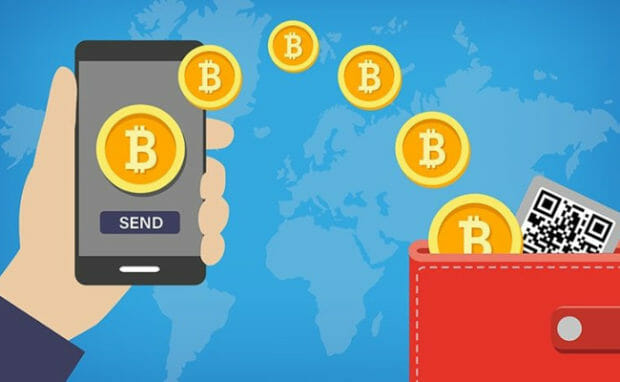Boracay Is Turning Into A Bitcoin Island
Sparkling white beaches, shimmering white sands, and growing crypto adoption? Tourists will soon come to Boracay for these features. Soon, people will call it a bitcoin island!
The cryptocurrency wallet service Pouch has been promoting Bitcoin’s use in the vacation destination for the past four months. At the time of writing, roughly 120 businesses have signed up for crypto adoption.
As a result, it has created a micro-economy that operates entirely on Bitcoin. Now, you can buy food at the local carinderias using Bitcoin!
Pouch’s goal of expanding PH crypto adoption
https://twitter.com/BitcoinIslandPH/status/1570672990207234048
The crypto wallet firm started in 2021 with the American expatriate Ethan Rose as its founder. It uses Bitcoin’s Lightning Network to “seamlessly send and receive [money] across borders.”
Pouch Vice President Bill Hill recently spoke with cryptocurrency publication Be[In]Crypto regarding the company’s plans for a bitcoin island. Hill said, “Right now, we are focused on getting businesses to accept payment, so there is somewhere to spend.”
He added, “The remittance market is starting to happen. That is the big goal. Over $35 billion comes into the country every year, losing about 7% to fees and taking one to three business days. We bring that down to around 1% or less and instantly.”
Overseas Filipino Workers (OFWs) sent $31.4 billion to their families last year. Also, the money often pays for education, food, clothes, housing, startup capital, and other living expenses.
In other words, it is an essential survival tool for Filipino families. Unfortunately, transfer fees take a huge portion of those funds. According to the World Bank, the global average cost of sending remittances to South Asia is 4.05%.
Moreover, one of its Sustainable Development Goals aims to reduce money transfer costs to 3% of total transaction value by 2030. Overall, Pouch and similar firms could bring the world closer to this ambition. However, the Philippines has been growing into a crypto hub even before Pouch’s bitcoin island project.
The Philippines may turn into a global crypto hub.

Photo Credit: bitpinas.com
President Bongbong Marcos shared his long-term plans for the country on July 25, 2022. Specifically, he explained why the Philippines needs digital transformation by listing several technological trends.
The President called these the “Fourth Industrial Revolution.” Then, he told the Department of Information and Communications Technology (DICT) “to identify and utilize these innovations to improve governance.”
The DICT will digitalize government records and streamline access across government departments. Moreover, it will create an “E-Government Masterplan.”
Meanwhile, the Philippines Department of Science and Technology (DOST) started a training program for blockchain technology. Executive Director Enrico Paringit said the country needs more experts in blockchain-based systems. The program will explore use-cases for the following:
- Healthcare
- Emergency aid
- Financial support
- Issuance of visas and passports
- Trademark registration
- Government record storage
The DOST also incorporated blockchain into the DOST Regional Research Institution (RRI) program. Its specific title is “Application of Blockchain Technology to the Guimaras Mango Supply Chain.”
Nowadays, the Philippines has 76.01 million internet users, and 32% reported they owned non-fungible tokens or NFTs. These record ownership of physical and digital goods via cryptocurrency networks.
Other firms expanding PH crypto adoption

Photo Credit: blockgeni.com
Pouch is not the only crypto transaction platform to enter the country. For example, crypto exchange Coins.ph partnered with Ripple and SBI Remit to improve cross-border transactions between the Philippines and Japan.
The Singapore-based crypto banking firm BCB pledged $300,000 for startup accelerators and incubators in the country. Moreover, it signed agreements with several universities to provide blockchain courses:
- Adamson University
- Batangas State University
- Caraga State University
- De La Salle University-Manila
- Far Eastern University
- Holy Angel University
- Mindanao State University – Iligan Institute of Technology
- QBO Innovation hub
- Siliman University
- Technological Institute of the Philippines
- Technological University of the Philippines (Visayas)
- University of Southeastern Philippines
Also, Binance also met with the Philippine government to discuss crypto adoption. Soon, Binance would enable other schools to offer free bitcoin courses.
Conclusion
The country’s ambitions for crypto transformation have been growing before the global pandemic. In 2019, the Ateneo De Manila University opened the Philippines’ first blockchain laboratory.
AdMU realized the growing global demand for crypto literacy and research. In response, it launched the Ateneo-MediXServe Blockchain Education and Research Lab or the AMBERLab.
It enables Ateneo students to design and execute blockchain projects that improve the world. Fortunately, non-Ateneo students and faculty may also use the facility.